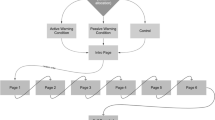Abstract
Studies of consumer complaint behavior have shown that many elderly consumers are very reluctant to pursue their rights through the complaint process when they encounter problems with products or services. This passive complaint behavior may be very costly to the elderly, who often live on fixed incomes. This paper presents a theory developed in experimental psychology that may help explain why clderly consumers are more likely than other consumers to incur losses rather than engage in complaint activity. The theory, known as learned helplessness (LH), refers to a process whereby noncontingent reinforcement produces the expectation that events are uncontrollable.
The theory of learned helplessness is presented and related to specific behaviors of dissatisfied elderly consumers that have been reported in the literature. Strategy implications of the theory are discussed for counselors, consumer affairs practitioners, and others interested in helping elderly consumers exercise their rights.
Similar content being viewed by others
References
Abramson, Lyn L., Judy Garber, and Martin E. P. Seligman: 1980, ‘Learned Helplessness in Humans: An Attributional Analysis’, in Human Helplessness: Theory and Applications, Judy Garber and Martin E. P. Seligman (eds.), New York: Academic Press, pp. 3–34.
Abramson, Lyn L., Martin E. P. Seligman, and John D. Teasdale: 1978, ‘Learned Helplessness in Humans: Critique and Reformation’, Journal of Abnormal Psychology 87, 49–74.
Andreasen, Alan R. and Arthur Best: 1977, ‘Consumers Complain — Does Business Respond?’, Harvard Business Review 55 (July–August), 93–101.
Barksdale, H. C. and William D. Perreault: 1980, ‘Can Consumers Be Satisfied?’, MSU Business Topics 28 (Spring), 19–30.
Bearden, William O.: 1983, ‘Profiling Consumers Who Register Complaints Against Auto Repair Services’, Journal of Consumer Affairs 17 (Winter), 315–335.
Bearden, William O. and J. Barry Mason: 1979, ‘Elderly Use of In-Store Information Sources and Dimensions of Product Satisfaction/Dissatisfaction’, Journal of Retailing 55 (Spring), 79–91.
Bearden, William O. and Richard L. Oliver: 1985, ‘The Role of Public and Private Complaining in Satisfaction With Problem Resolution’, Journal of Consumer Affairs 19 (Winter), 222–240.
Bernhardt, Kenneth L.: 1981, ‘Consumer Problems and Complaint Actions of Older Americans: A National View’, Journal of Retailing 57 (Fall), 107–113.
Best, Arthur: 1981, When Consumers Complain, New York: Columbia University Press.
Hart, Sandra: 1983, ‘Learned Helplessness: A New Consideration for Advertising and Sales Promotion’, in Marketing: Theories and Concepts for An Era of Change, John Summey, R. Viswanathan, R. Taylor, and K. Glynn (eds.), Carbondale: Southern Marketing Association, pp. 282–285.
Hart, Sandra, and William C. Moncrief: 1985, ‘An Analysis of Learned Helplessness in a Sales Force’, in Marketing: The Next Decade, David M, Klein and Allen E. Smith (eds.), Boca Raton: Southern Marketing Association, pp. 172–174.
Martinko, Mark, J. and William L. Gardner: 1982, ‘Learned Helplessness: An Alternative Explanation for Performance Deficits’, Academy of Management Review 7 (No. 2), 195–204.
Miller, Ivan W. III, and William H. Norman: 1979, ‘Learned Helplessness in Humans: A Review and Attribution Theory Model’, Psychological Bulletin 87 (No. 1), 93–118.
Motes, William H.: 1982, ‘A Learned Helplessness Model of Consumer Behavior’, in Marketing Theory: Philosophy of Science Perspectives, Ron F. Bush and Shelby Hunt (eds.), Chicago: American Marketing Association, pp. 151–154.
Nelson, Thomas C.: 1978, Consumer Problems of The Elderly, Washington: Federal Trade Commission.
Overmier J. B., and Martin E. P. Seligman: 1967, ‘Effects of Inescapable Shock Upon Subsequent Escape and Avoidance Learning’, Journal of Comparative and Physiological Psychology 63 (No. 1), 23–33.
Pfaff, Martin and Sheldon Blivice: 1977, ‘Socioeconomic Correlates of Consumer and Citizen Dissatisfaction and Activism’, Consumer Satisfaction, Dissatisfaction, and Complaining Behavior, Ralph L. Day (eds.), Bloomington: Indiana University Press, pp. 115–123.
Richins, Marsha L.: 1980, ‘Consumer Perception of the Cost and Benefits Associated with Complaining’, in Refining Concepts and Measures of Consumer Satisfaction and Complaining Behavior, H. Keith Hunt and Ralph L. Day (eds.), Bloomington: Indiana University Press, pp. 50–53.
Richins, Marsha L.: 1983, ‘Negative Word of Mouth Communication by Dissatisfied Consumers: A Pilot Study’, Journal of Marketing 47 (Winter), 68–78.
Seligman, Martin E. P. and S. F. Maier: 1967, ‘Failure to Escape Traumatic Shock’, Journal of Experimental Psychology 74, 1–9.
Valle, Valarie, and R. Koeske: 1977, ‘Elderly Consumer Problems: Actions, Sources of Information, and Attributions of Blame’, in Proceedings of The American Psychological Association, Division 23, Clark Leavitt (ed.), Washington: American Psychological Association.
Waddell, Frederick E.: 1975, ‘Consumer Research and Programs for the Elderly — the Forgotten Dimension’, Journal of Consumer Affairs 9 (Winter), 164–175.
Wall, Marjorie, Lois Dickey, and W. Wayne Talarzyk: 1977, ‘Predicting and Profiling Consumer Satisfaction and Propensity to Complain’, in Consumer Satisfaction, Dissatisfaction and Complaining Behavior, Ralph Day (ed.), Bloomington: Indiana University Press, pp. 91–101.
Warland, Rex H., R. O. Herrmann and J. Willits: 1975, ‘Dissatisfied Consumers Who Get Upset and Who Takes Action’, Journal of Consumer Affairs 9 (Winter), 148–163.
Author information
Authors and Affiliations
Additional information
Mary C. LaForge is currently Associate Professor of Marketing at Clemson University. She received her Ph.D. in Marketing from the University of Georgia. Her current research interest focuses on the behavior of the elderly as consumers.
Rights and permissions
About this article
Cite this article
LaForge, M.C. Learned helplessness as an explanation of elderly consumer complaint behavior. J Bus Ethics 8, 359–366 (1989). https://doi.org/10.1007/BF00381727
Issue Date:
DOI: https://doi.org/10.1007/BF00381727




